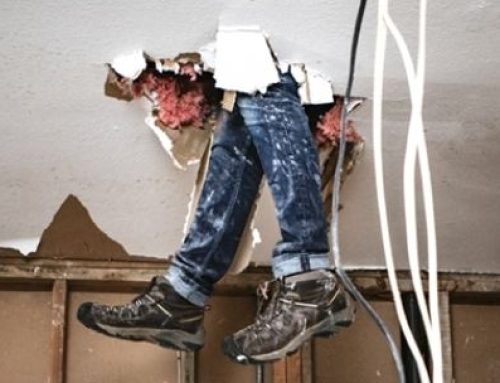Nobody’s perfect. We’ve all made mistakes. And sometimes our finances suffer as a result.
Perhaps you’ve been so busy with work and the kids that you forgot to pay an electric bill or two. Maybe you got stuck overseas and had to overdraw on your credit card. Or maybe you just felt like you deserved a little retail therapy after that horrible week at work and went a little crazy with your online shopping.
We’re only human, and from time to time we fall into the trap of misusing our finances and spend beyond our means. But that’s all in the past now and you want to move on with your newfound frugality and sensible spending habits. However, the time has come to buy your first home and you’re wondering if all that bad spending is going to catch up with you…
How can a bad credit score affect your chances of home loan approval?
In a nutshell, a less than stellar credit score will almost always play a big role in whether or not you are able to get financial approval.
What is a credit score exactly?
A credit score is basically a grade that is used by financial providers to help establish whether or not you’re a good candidate for a loan. Depending on your history of financial spending, your credit score will fall into a category somewhere between, ‘Below Average’ to ‘Excellent’. Wherever you fall on the credit score spectrum will determine the likelihood of being approved for a loan, the amount that you will be allowed to borrow, and your repayment options (including interest rates).
If you have absolutely no idea what your credit rating is then all you need to do is jump online, fill out a bunch of questions, and you should have your answer in two shakes of a lamb’s tail. For those of you curious about how you might find yourself with a low score, here’s what not to do!
3 ways to avoid getting a bad credit score
1. Don’t max out your credit
When applying for a loan, lenders will calculate the amount of credit used against the full amount of credit you can access, which will determine your Credit Utilisation Ratio. The percentage of which will tell them whether or not you would be able to maintain your repayments if you found yourself in a difficult situation. For example, you suffered an unexpected health crisis which required you to spend a significant sum on an operation, medications, and physical rehabilitation – would you still have enough to make your monthly repayments? The lower the ratio, the higher your score will be. If your ratio gets above 50%, that’s when your credit score will start to suffer.
2. Don’t miss any payments
This not only goes for credit card and loan repayments, but also power bills, water, internet, phone, you name it. This is major because if a financial provider finds that you have a history of failing to make your payments on time, that will automatically raise red flags and you’ll be deemed financially unreliable. Your credit score will not thank you for this and will take a huge beating because of it.
3. Don’t apply for more than one credit card at a time
This also goes for loans as well. Whenever you apply for a credit card or loan, a credit inquiry is requested by the institution in order to obtain credit report information from a reporting agency. And every time you do this, it goes on record, along with the amount of credit you requested. Why is this such a big deal? Well, if you apply for a home loan for instance, and the lender notices that you’ve applied for a high number of credit cards and/or loans in a small period of time, they’re going to wonder why. Are you in dire need of money? Are you spending more than you can afford? Whatever your reasons, they won’t look favourably on such activities. Moreover, these inquiries won’t be cleared for a good five years, so it’s best to avoid doing at all costs.
Am I able to get a home loan with a bad credit score?
The harsh reality is that a bad credit score will impact your chances of being approved for a home loan, and it also has the annoying trait of sticking around for quite a long time. 7 years to be exact. So the truth of the matter is that having bad credit is not going to be all sunshine and rainbows if you’re looking to buy a home.
However, there is a light at the end of the tunnel! Despite the fact that the vast majority of financial institutions use your credit score when deciding on your viability for approval, it’s always going to be slightly different depending on who you talk to. So don’t give up if you’re turned away from one lender, try the next one! The other thing to remember is that although your credit score is categorised within a spectrum of best to worst, there isn’t actually a conclusive number that completely cuts off your chances of being approved for a home loan.
More options
If you’re finding it hard to obtain a regular a home loan on the basis of your credit score, there are a good many institutions that actually offer ‘Bad Credit Home Loans’. These are loans that are specifically directed at those who aren’t having any success elsewhere, and you may be the perfect candidate. If you’re still unsure about the best course of action to take based on your credit score, it may be a very good idea to talk to a financial adviser. They’re going to be able to help you go through all your options, compare mortgage loans from a vast number of providers, and will help you get the best value for your individual situation, no matter how dire.
If there’s any cliched advice that I can finish on, it’s simply that you should never give up, because although a bad credit score might make things harder when applying for a home loan, it doesn’t make it impossible. So just keep on keepin on.







Leave A Comment